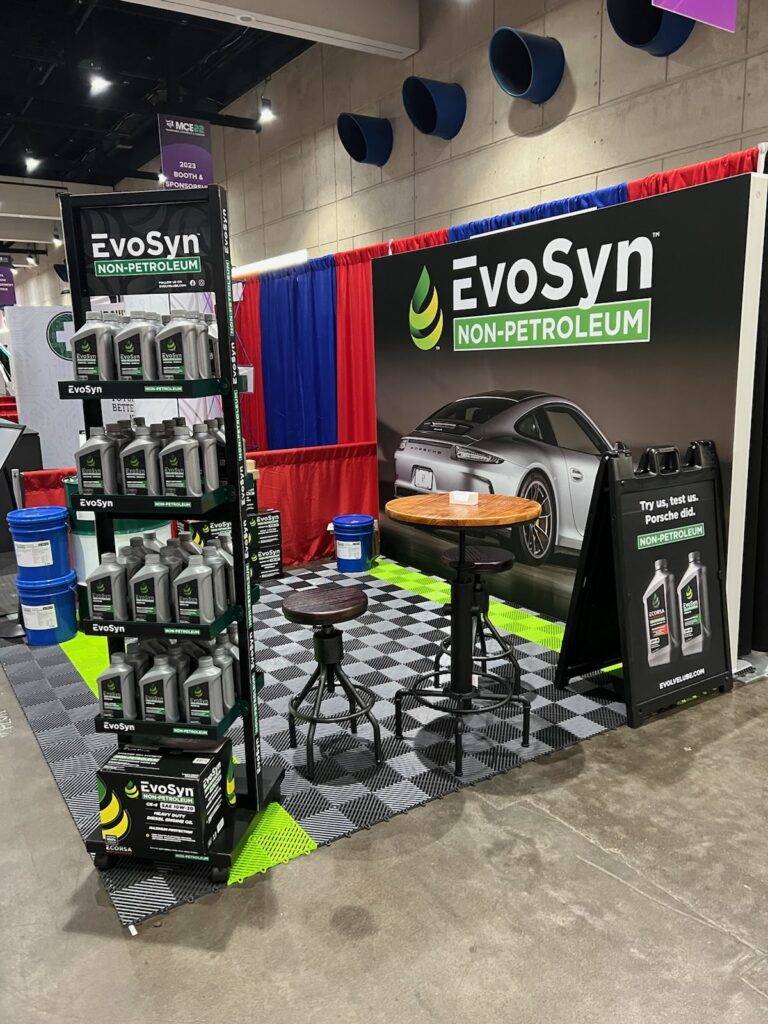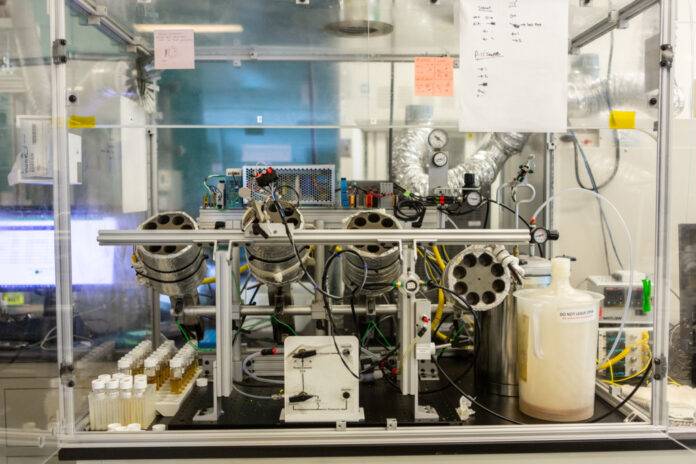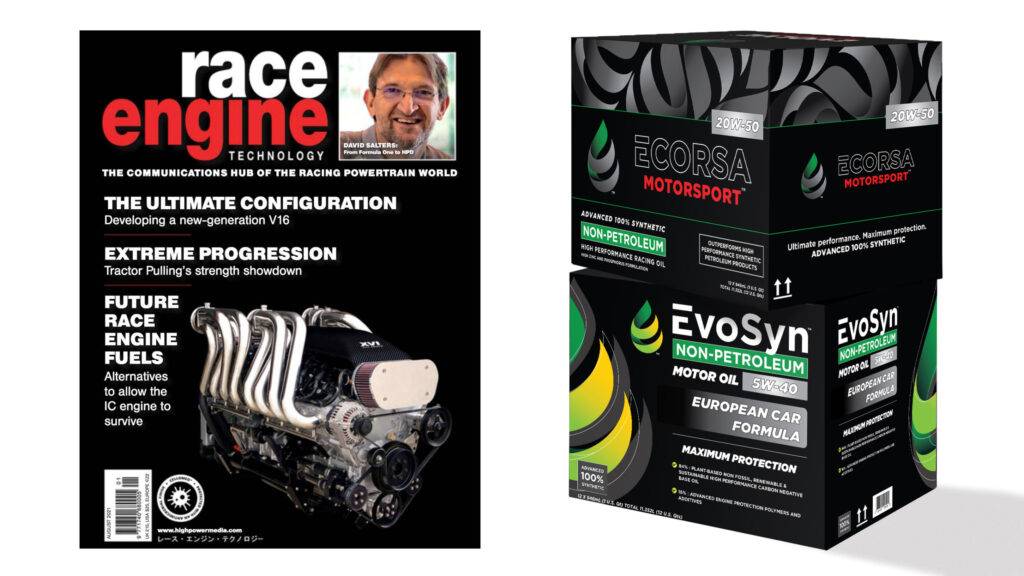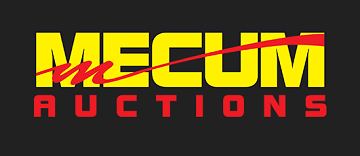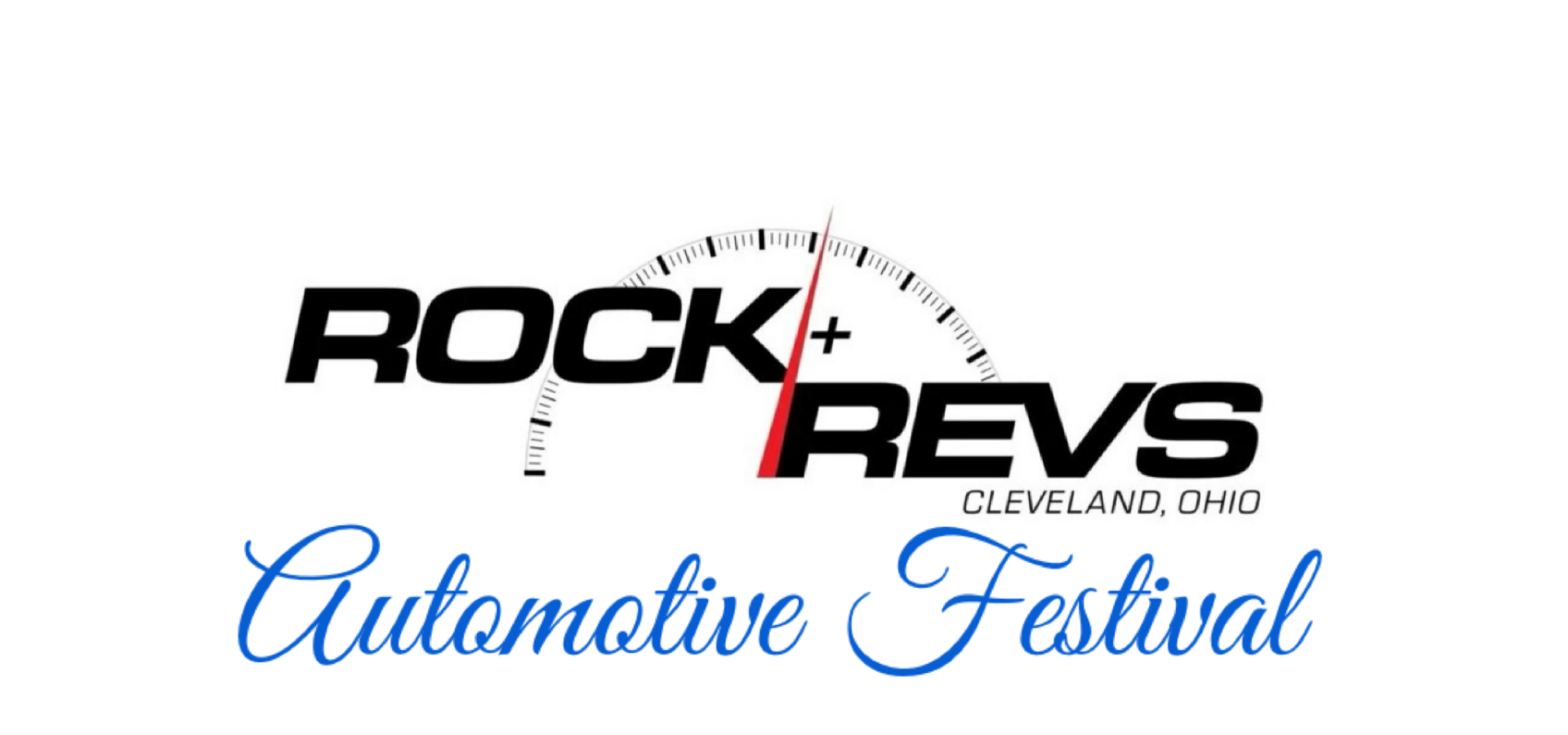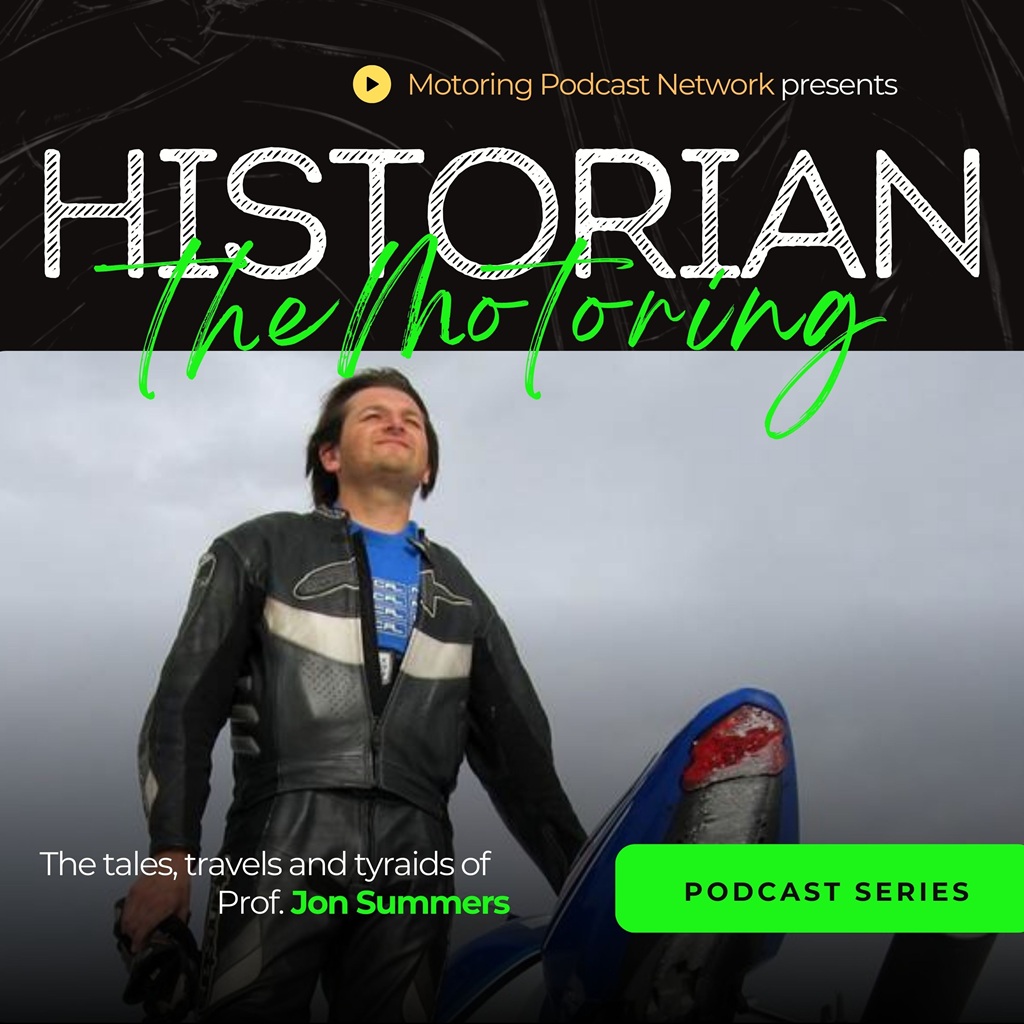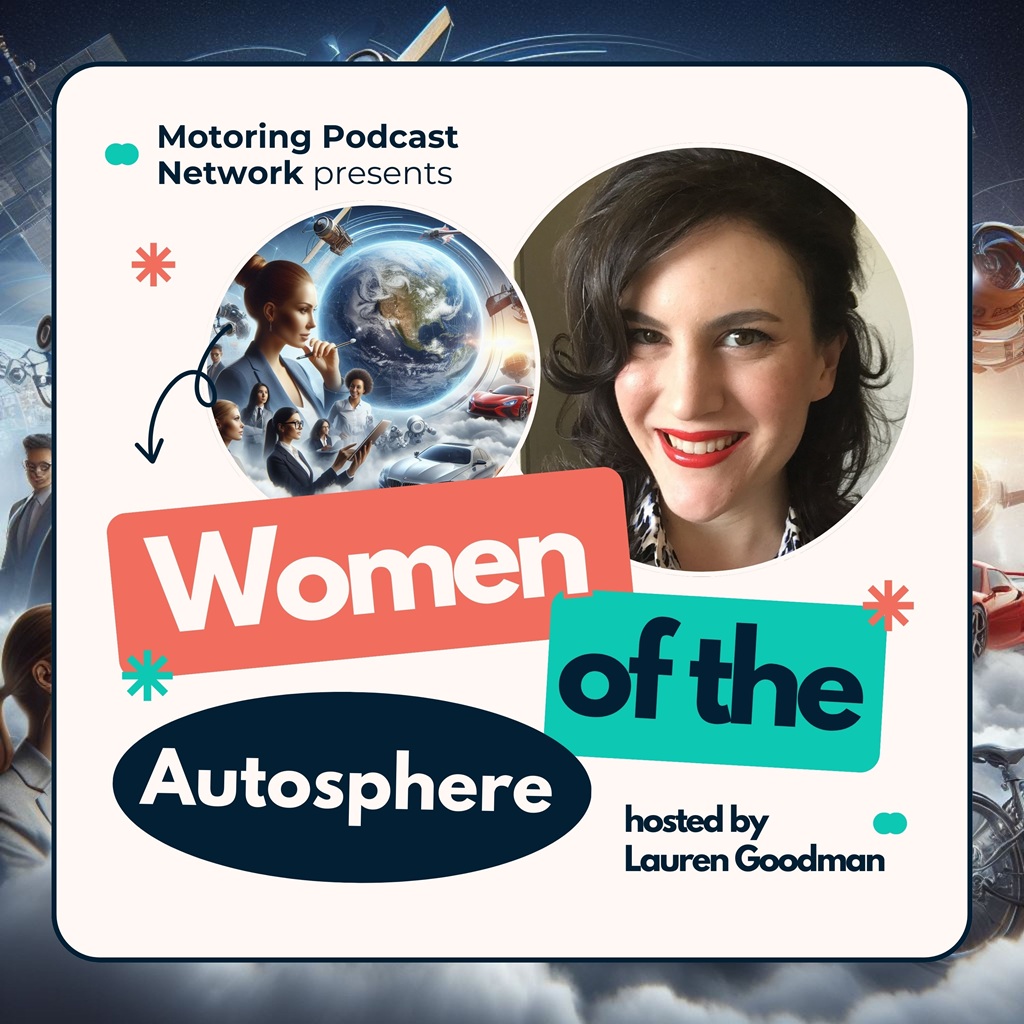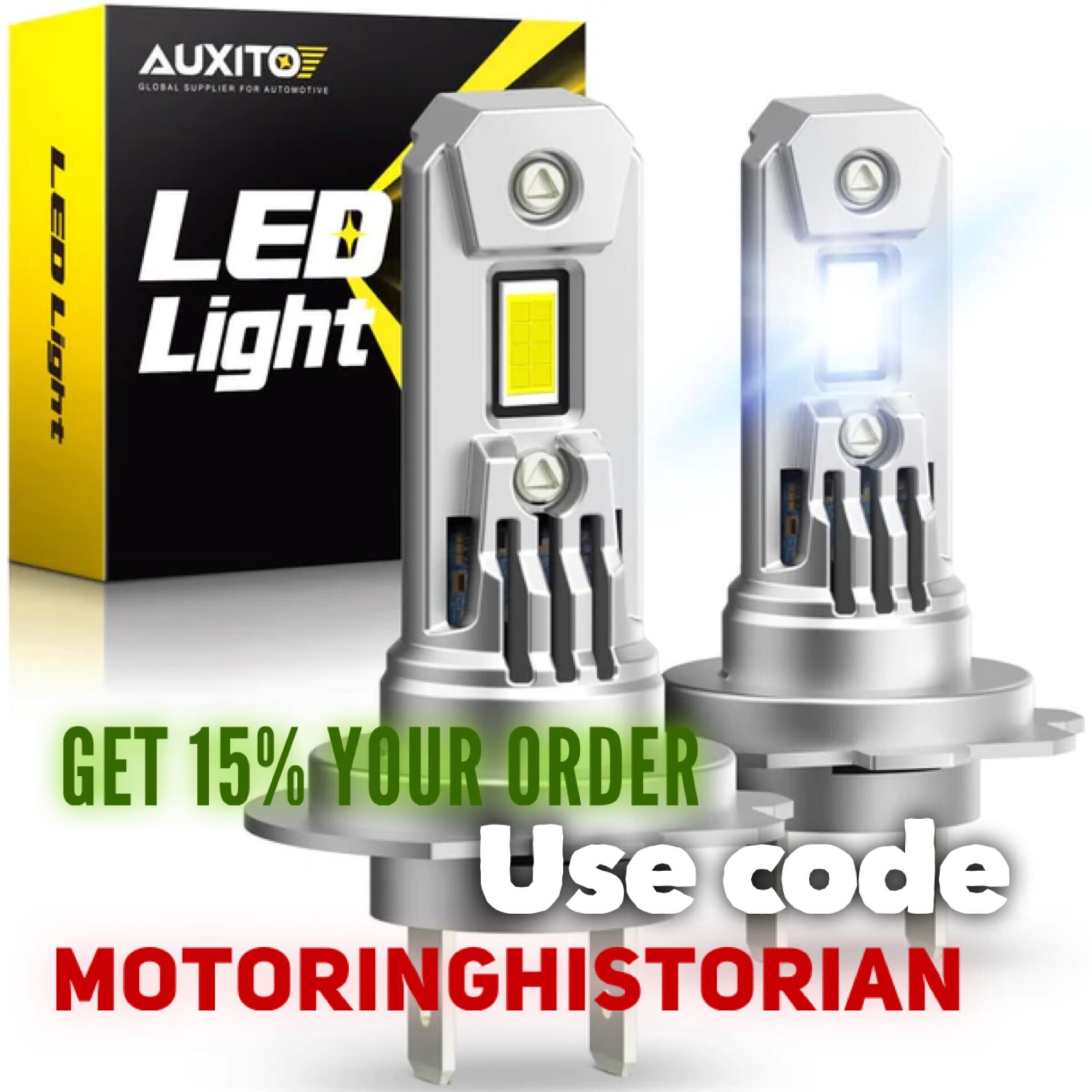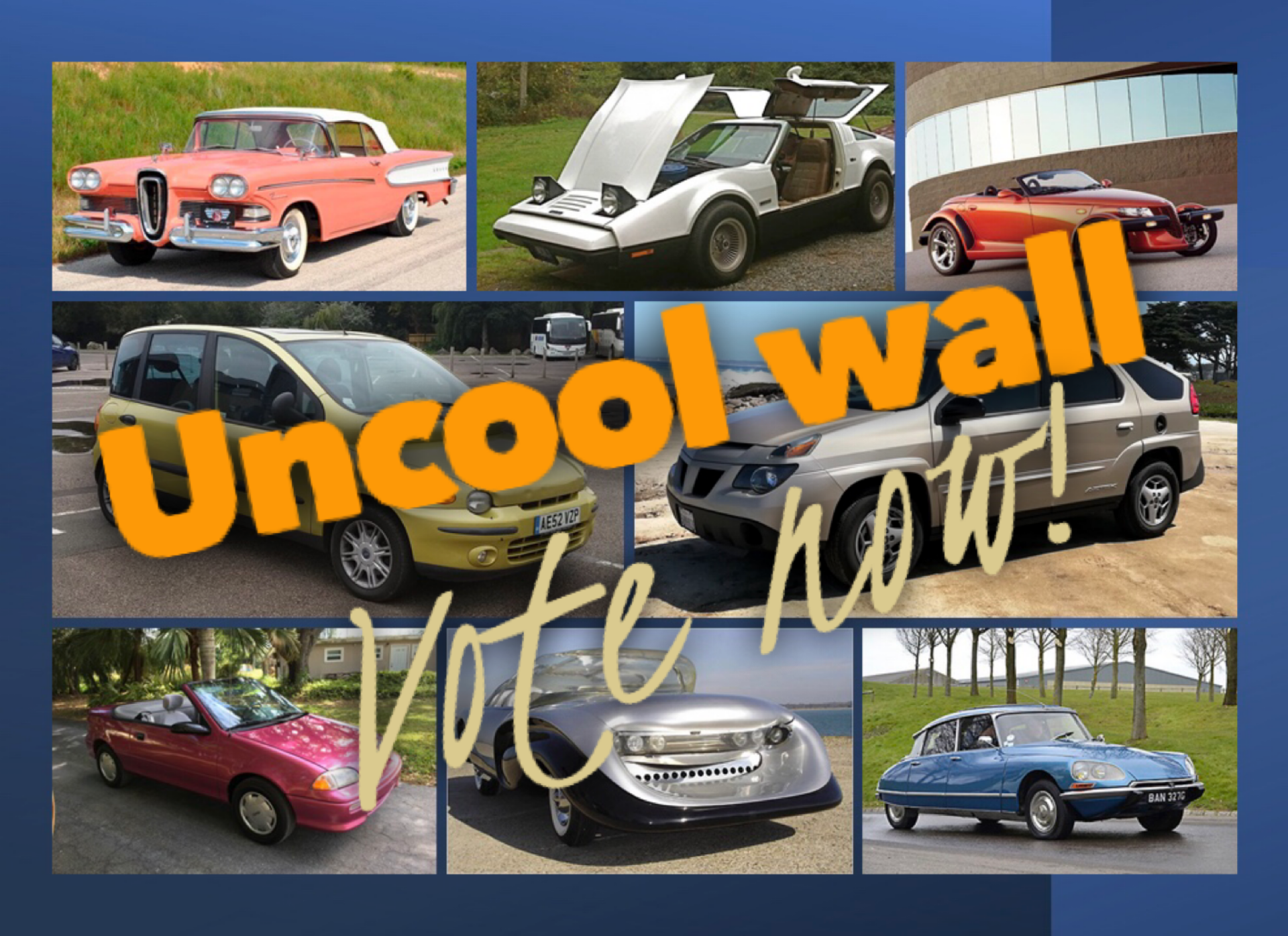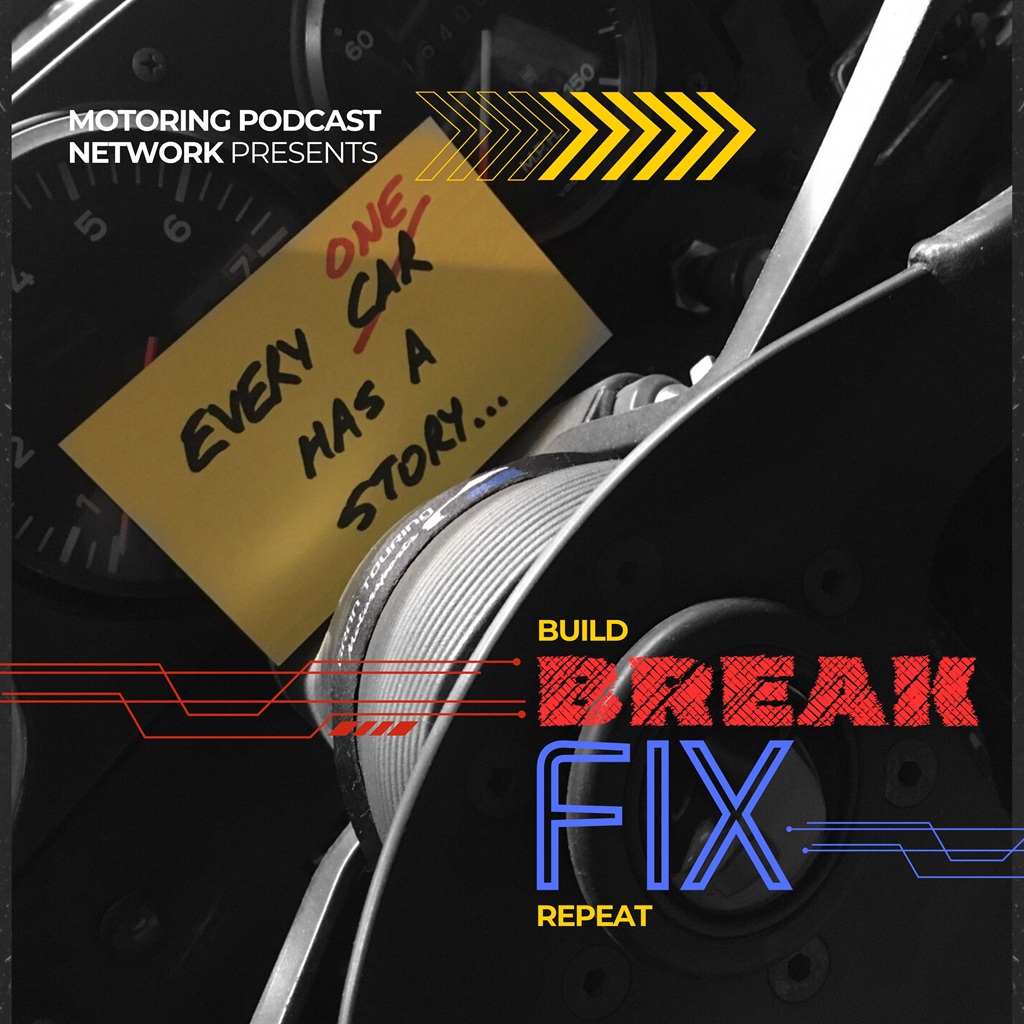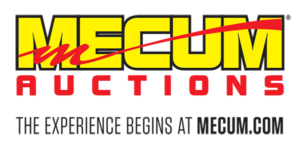Dedicated to using advanced technology and scientific breakthroughs to bring high performance finished lubricant solutions to market that provide a positive impact on the environment. Unheard of within the oil and lubricants industry, they were able to take the leap and produce products that are composed of primarily sustainable and renewable plant-based base oils while outperforming other petroleum-based products. Utilizing new technology, they created a ground-breaking, unique hydrocarbon molecule entirely based on plant-based feedstocks.

EVOLVE LUBRICANTS, Inc. is a green technology company that develops and manufactures high-performance non-petroleum based, sustainable lubricant solutions for the consumer, commercial, industrial and transportation sectors. And joining us tonight is Rick Lee, CEO and President for EVOLVE LUBRICANTS to explain how this all works.
Tune in everywhere you stream, download or listen!
 |  |  |
- Spotlight
- Notes
- Transcript
- Highlights
- Learn More
Spotlight
Rick Lee - CEO and President for Evolve Lubricants, Inc

Evolve Lubricants Inc. is a green technology company that has developed and manufactures high performance non-fossil sustainable lubricant solutions for the consumer, commercial, industrial and transportation sectors. Evolve Lubricants is bringing to the global marketplace the first hydrocarbon plant-based synthetic products that outperform all petroleum-based lubricants available today. We’re dedicated to producing the most advanced high performance lubricant solutions that are 100% petroleum free, sustainable, and renewable. All Evolve products outperform traditional petroleum-based products.
Contact: Rick Lee at Visit Online!![]()
![]()
Notes
- History of EVOLVE LUBRICANTS – the who/what/where/when of the brand. How did it all get started, and why?
- Not all oils are created equal – What makes EVOSYN and ECORSA MOTORSPORT different? (elevator pitch). How would you compare your offerings for Motorsports applications to those of Mobil-1, Liqui-Moly, Motul etc?
- Are you using similar additives and modifiers as you would see in a more traditional oil?
- Your oil claims large ZINC contents, which is an excellent way to protect wear/tear items in the system. But they generally have a lower heat tolerance; how did EVOLVE come up with a “one size fits all” oil? #heatistheenemy
- If we sent your product off to a facility like Blackstone Labs for testing, what would they expect to see in the results?
- “Spec oils” – German manufacturers often have very strict requirements on what oil you should choose. How do you find out if EVOLVE LUBE products are the right oil for your application? Are there cars (or manufacturers) that are being supplied with EVOLVE LUBE products?
- Where can EVOLVE LUBE products be found? OTC? Dealer?
and much, much more!
Transcript
Crew Chief Brad: [00:00:00] BreakFix podcast is all about capturing the living history of people from all over the autosphere, from wrench turners and racers to artists, authors, designers, and everything in between. Our goal is to inspire a new generation of petrolheads that wonder How did they get that job or become that person?
The road to success is paved by all of us, because everyone has a story.
Crew Chief Eric: Tonight’s Break Fix guests are dedicated to using advanced technology and scientific breakthroughs to bring high performance, finished lubricant solutions to market that provide a positive impact on the environment. This is unheard of within the oil and lubricants industry.
They were able to take the leap and produce products that are composed of primarily sustainable and renewable plant based oils while outperforming other petroleum based products. Utilizing new technology, they created a groundbreaking, unique [00:01:00] hydrocarbon molecule entirely based on plant feedstocks.
Executive Producer Tania: Evolve Lubricants is a green technology company that develops and manufactures high performance, non petroleum based, sustainable lubricant solutions for the consumer, commercial, industrial, and transportation sectors. And joining us tonight is Rick Lee, CEO and President for Evolve Lubricants to explain how all of this works.
Crew Chief Eric: That’s right. Thanks, Tanya. And welcome to Break Fix, Rick.
Rick Lee: Well, thanks for having me.
Crew Chief Eric: So like all good Break Fix episodes, we want to dive into the who, what, where, and when of our guests or the folks that we’re talking to. So let’s talk about the history of Evolve Lubricants. How did it all get started and why?
Rick Lee: Evolve Lubricants, you know, really began in both the lab and the bench testing of racing oils about eight years ago. My business partner is Tom Kirkham, who Went to Poland with his brother and they converted a MIG factory aircraft plant into making aluminum body Cobras. I read about
Crew Chief Eric: that years ago. [00:02:00]
Rick Lee: Yeah.
So Tom Kirkham is my business partner. He owns a significant portion of Evolved Lubricants. We’ve been good friends for 25 years. I raced his Cobras. I mean, I, I did it wrong. I started out with Cobras and then moved to Miata’s, you know, uh, so, and then, so, well, okay, maybe this isn’t really a good idea to be doing this in Cobras.
He was in the very front of things. He’s a mechanical engineer. They looked at what was happening in the Cold War and all these other things. And they were one of the first Americans over into Poland after the Cold War. So. You see things like that happening, and I see us at a very interesting point right now.
We were very interested in trying to make the very best racing oils we could, and we were testing with Paul Hasselgren, who was Toyota Engine Builder of the Year for about 10 years. We had access to his dyno and running those Toyota Atlantic 4AG engines at 10, And so we found ourselves trying to [00:03:00] perfect racing oils, basically trying to make those engines run as strong as they could.
And as long as they could
Crew Chief Eric: at that time, you were testing existing oils, not to name any brands, but we’re talking conventional petroleum based oils. So. What led you to make this move to develop your own?
Rick Lee: Well, you know, I was in the industrial commercial sector. I spent about 25 years in the Chevron distribution channel.
I had spent this time in the petroleum space. I saw some advances that were happening in the biotech world, particularly with molecular modeling and sequencing. I saw some products that, or molecules that were being developed really as additives to increase the performance of lower performing base oils, like Group 2 base oils.
Those additives were being used to meet OE specifications. Under a deeper dive into some of this technology or the molecular modeling, what I found was something that I thought might, with some work, make a very good racing oil. And that’s really how we [00:04:00] started.
Crew Chief Eric: So did you immediately take this new idea and test it on race cars or production cars?
Was it something in your stable or is it one of the race cars you were already working with?
Rick Lee: We actually did start testing and we did a lot of AB type of testing around additives and things like that. And, you know, we were using probably the best polyalpha olefin feedstocks group four and group five ester products in our development work.
We said, Hey, listen, let’s start slowly trying to replace the petroleum part of the base oils with this molecule to see results. What we get at the time we were doing more scientific types of testing, but it was really about trying to get more horsepower and torque out of the Atlantic motors.
Crew Chief Eric: I’m sure our audience is really curious to know what the base oil is made out of.
You know, people are probably thinking, you know, it’s plant based. So are we talking corn? Are we talking palm oil? Are we talking who knows? Right. I kind of harken back to an episode of Top Gear kind of reminded me as I was digging in and doing some [00:05:00] research on evolved lubricants, where they were. growing, cultivating, and harvesting in an attempt to make their own gas right out of rapeseed and things like that.
So is that the path that you guys went down where it’s like it’s a giant farm and then you guys are going through and then turning this into your base oil?
Rick Lee: The technology actually started off with sorghum and unique to the base oils, each of the continents seem to be good. With certain types of oil. So Europe is a really great source for grapee or canola oil and the us, particularly soy for the US markets.
And what we do is a conversion. Basically if you, you know, the soy plant, majority of that goes to the protein. We actually start from acetyl alcohol. There are oils that are derived from the soy. We begin that in our process relative to our base oils.
Executive Producer Tania: Most people are when they think of lubricants and motor oils.
Their heads probably go into big refineries, uh, things of that nature. But I mean, I, I would assume this is obviously much smaller scale, probably more laboratory [00:06:00] type. What’s your capacity look like?
Rick Lee: Yeah, actually it’s not. One of our joint partners started off with a biotech company and grew into an investment by our major oil refinery.
And the plant today is producing 20 million gallons. There was a refinery that was built at the cost of about 150 million. So this is not a benchtop laboratory type of project. We actually are manufacturing at full scale, the ability to do about 27 truck loads a day out of our Richmond, California facility that has both rail and bulk facilities there.
The technology has come a long way in the last. Eight years, we’re very fortunate to have good partners in building what we think is the highest performing engine oils in the world without question. And where we also have a great story to say, you know, we say, Hey, from the base oil process, we actually have a certified negative carbon score of a negative 0.
52 [00:07:00] LCA. We’ve come a long way. And being able to formulate and make products that were eventually then tested by Porsche AG in Germany this last summer. And those results were so successful. They agreed to publish the test results and have me write a paper and present that to the World Engine Congress in Baden Baden, Germany this last January.
Executive Producer Tania: That’s awesome. Congratulations on that.
Rick Lee: I guess so. That was a lot of stress. I spent most of my Christmas break locked up in a room writing a paper. So I guess it was worth it.
Crew Chief Eric: So let’s circle back to the Evolve Lubricant offerings, especially in the oils that we’re talking about here, engine oils. So there’s two, there’s EvoSyn and E Corsa.
What’s the difference? What is that all about?
Rick Lee: Sure. Primarily the EvoSyn lineup is really the commercial passenger car motor oil brand. And that brand is also carried into our heavy duty industrial lineup. So if you are a fleet owner, we’ve actually just completed our 15W40CK4 [00:08:00] spec diesel engine oils and our FA4 spec 10W30 diesel engine oils, a low sulfated ash product.
We’re not just doing passenger cars, but we’re doing heavy duty over the road. diesel engine oils and contained in the U. S. patent is actually a four percent miles per gallon savings, which is significant savings in fuel economy for those companies. And we’re getting a lot of traction and attention based on that, of course, because, hey, we have an alternative to petroleum and companies are looking at these things.
There seems to be a convergence of both. Public policy and demand for these products and companies are looking for ESG solutions, which we have,
Crew Chief Eric: and the e corsa is formulated specifically for, let’s call it high temperature, high abuse, you know, track use,
Rick Lee: right? So like our 2050 e corsa racing oil. We’ll find itself into the 917 Porsches of Bruce Canepa, the 935 Porsches that he has as well, we have a high temp, high [00:09:00] sheer number of 6.
3. That’s extremely remarkable having that kind of high temp, high sheer number for that particular product. So. In addition, what’s really special about these products is the ASTM four ball scar test in which, you know, our score is 0. 24 and the lower the score, the better our tests actually outperform every engine oil on the market on that ASTM test.
It’s a D 4172 if you’re curious.
Crew Chief Eric: When you compare and contrast EvoScent to E Corsa, obviously the base oil in this case is probably the same. So is the difference come into play with the additives that you put in for the motorsports oil versus the commercial?
Rick Lee: It does. We actually publish what the zinc and phosphorus and calcium content is and we brand it right on the bottle on the parts per million.
Something I don’t think any other oil companies are doing. We’ve done a lot of testing relative to where the precise additive is and really about performance. It gets down to the base oils and the combination of those base [00:10:00] oils and additives. So I describe it to a lot of folks, like, imagine a bunch of pendulums moving with targets on them, and you’ve gotta align up those targets and be able to thread that needle really, really accurately.
Executive Producer Tania: I mean, your focus right now is primarily on engine oils. Is there future expansion into other lubricants slash greases, bigger applications, EVs, there’s no engine there, but there are still other components that need lubrication.
Rick Lee: Yeah. And to answer that question, the answer is yes. We make a full line of hydraulic oils, 68.
We carry the eco label additive packages and the real difference. I guess I want to say this. There’s been a lot of biodegradable products in the past, but they really can’t take the higher temperatures because they weren’t hydrocarbons. They were esters primarily. So we make a product with a molecule.
that can really take the heat, and that’s the big difference is that this is a true hydrocarbon. So we have a lot of precise control over the alpha olefin chain length [00:11:00] and the average branching point. It’s that linear alpha olefin and the control of the double bond position and the oligomerization and isomerization process to be able to get this optimized final structure process.
And on the most simple terms, if you think about it like this, if you know how heat is transferred in a fluid through kinetic energy and conduction, this molecule has a much thicker carbon backbone. And because of that, the heat transfers through that backbone a lot more efficiently and the final product.
Is been really worked under a lot of precision to operate in those performance characteristics, which we’ve designed for the oil under a lot of contact pressure and shear. The base molecule really starts to self assemble, resulting in lower traction and power loss. It’s a pretty high tech solution and petroleum just can’t get there.
It’s just one of the great things about this new technology. Is that we feel very, very fortunate to be [00:12:00] able to bring this carbon negative base oil solution that we have and be able to apply that to both motorsports and commercial applications right now. And we’re testing in some of the largest fleets in the country right now.
Executive Producer Tania: And people might be wondering why can’t the more traditional oils get there or be the same and it comes down to you guys are using plant based versus crude oil. Crude oil is very dirty. It’s a lot harder to quote refine that. There’s a lot of bad things, impurities. They’re called sulfur, nitrogen, aromatic rings.
Things of that nature that are not good and require a lot of processing steps to get them out can never get them quite 100 percent out. But if you never start with them to begin with, then they aren’t there.
Rick Lee: So, you know, sulfur is a really interesting topic because, you know, we have no sulfur in this product, so we know in the.
The combustion process in the pan and things that the engines creating sulfuric acid. And so one of the challenges is that oil [00:13:00] being hydroscopic, you know, when you take your race engine and in the wintertime you eat it up for 10 or 15 minutes and you don’t boil all the water out, really essentially what you’ve got.
done now is you’ve coated your engine as you’ve turned it off with other acids. And, you know, that’s not what you want on your cam and tablet surfaces sitting most of the winter. So what we’ve seen in a lot of vintage racing engine applications is etching and other kinds of surface profile destruction that we see from acids.
And that’s a benefit of our oil is that we just don’t have that.
Crew Chief Eric: So vehicles that you’ve mentioned so far with respect to motorsport, they’re vintage, which is good. And somebody needs to cater to the vintage market, but how does the evolved lubricants products play in modern motors? You know, especially a lot of these turbocharged motors where heat is the enemy, right?
We’re always running up against that wall. So how does it perform in those types of applications?
Rick Lee: Well, I’m glad you asked that because. That’s exactly what Porsche wanted to know and the 2022 Porsche 911, the [00:14:00] MA203 turbocharged engine is the test engine in which Porsche took through the paces a couple hundred hours on the dyno in a fuel dilution scenario.
So I’m sworn to secrecy what the percentage is. They diluted the oil, you know, a little more than a third. You know, ran this through all different types of conditions from full race conditions to city stop and go all different kinds of conditions. At the end of the test, there were a lot of really cool takeaways.
And one of them was that the evolved products held their viscosity and we started with the zero 40. So we held our viscosity better than any reference oil they had ever tested. And that was significant. And we looked at all the different lines in the test. And to be able to maintain the viscosity under heavy fuel dilution and other kinds of stressors in a modern motor show that this not only performs for the 5 million vintage 917 Porsches of the world, but the everyday Porsche or luxury or sports car that you’d like to put this in.
Crew Chief Eric: [00:15:00] So a lot of that obviously comes down to the modifiers and the additives. that you’re putting into your oils as part of your formulation. But I want to look at it from the simplistic race car driver approach. When I’m in the car and I’m on track, you know, half an hour, hour, hour and a half at a time, all I have to go by are the gauges, right?
I can’t tell you what the dilution level is. I can’t tell you what the motor is doing, how much sulfuric acid is generating. What I know is. What my oil pressure is and what my oil temperature is, and those are the two most important things when I’m out there beating up on the car. So I’ve tested different oils in my race engine and mm-hmm.
Obviously when you look at the larger chart of petroleum based oils, heavy zinc based, or what we would call diesel oils are the enemy. You don’t want to use those ’cause they don’t withstand high temperatures very, very well. They’re great for rings and they’re great for protection and coating items.
But when you move to other manufacturers that have. Purely ester based oils. They can withstand more heat. They have a higher flash point, all these kinds of things. So where does the Evolv E Corsa product fall into [00:16:00] that scale? Is it in the upper right corner where it can withstand 300 plus degrees for hours at a time or where does it sit on that scale if you compare it with a petroleum based oil?
Rick Lee: So the Evolv product outperformed every petroleum engine oil on the market today. If you were to present it on the scale. Based on shear stability scores, based on NOAC scores for volatility and oxidation, we actually are extending engine drain intervals in the commercial side two to three times based on the ability of the product not to oxidize and its ability to resist heat.
You know, the results in our molecule is a critical control over the fluid properties of viscosity. Volatility, vapor pressure, traction, friction coefficient, freezing points, those things. So when you’re able to really model this molecule to perform, a couple things happen. One is that don’t get blow by that’s happening that a lot of engines will do.
You don’t have to top off. Those [00:17:00] are other kinds of things that you see on the racing front, at least in endurance racing. Last year at Le Mans, I see people pitting to top off their oil and I’m screaming at the television, you know, going, Hey, if they were just using our oil. They wouldn’t have to make that stop.
In general, the additives are very important. Yes. And it’s the balance of the additives, not just the additives alone. It’s how they’re balanced and such. So I think you’re right. You know, really the, the strongest characteristics of the oil is, is how it feels in the seat of your pants in a race car. And what most people tell me is, Hey, the motor runs smoother.
It seems to be happier. R. P. M. S. And horsepower gains. One of the takeaways in the Porsche test was a 12 horsepower gain. That was 12 metric. So roughly about eight U. S. Horsepower gain in this particular test.
Crew Chief Eric: So should we expect to see lower oil temperatures?
Rick Lee: One of our initial test subjects was arrow lane out in Arizona.
And, you know, we’ll They’re out in the heat and, you know, they had a number of years of [00:18:00] experience and the first thing they noticed is their oil temps dropped about 10%. A huge number. I mean, that’s just a great advantage. So in racing, sometimes, you know, you have to tape up the radiators to get the heat in there to get the power.
I mean, that’s something you can play with and work with. But essentially, if there’s less friction going on in this motor, it’s making more power.
Executive Producer Tania: Speaking about the additives, are you guys developing your own or are you going to companies that have already, you know, there’s companies out there to develop them?
Yeah,
Rick Lee: no, we’ve used just about every additive company in the past in the world. We didn’t use any particular. off the shelf kind of thing. You know, when we first started, I mean, it was all about things I had seen in metals tests and other things, different philosophies about molybdenum and how much to put in, how not to put in, you know, we saw filters being clogged with the stuff, tearing up motors.
We’ve seen all kinds of diminishing returns based on certain additives that were in there. In the early days, we made changes in, in this AB testing and it robbed power from 4, 000 RPM to [00:19:00] 7, 000 rpm. That’s not a good thing, right? So we always were looking for the absolute pinnacle of performance. And, you know, to your question about where we sit on the scale, that’s it.
We are a performance driven first company. It’s in our DNA. And the second thing that’s in our DNA is providing the world, the solution to get off of petroleum.
Crew Chief Eric: My next question is a bit of a twofold question, and I think it’s important for the folks that are listening to this that have been following along with other episodes we’ve done talking about cooling and motor oils and testing and things like that.
I’m wondering this. Are you guys in the process? of accepting samples? Are you polling the audience and saying, send us part of your next oil change? We want to see what the results are. And if not, and if folks want to send it to Blackstone or, you know, somebody else that has a testing facility, what are the expected results?
So these two questions go together, but can be answered separately.
Rick Lee: I’m glad you talked about oil analysis because it’s a big part of knowing what’s [00:20:00] going on in that engine, right? The answer is yes, you can send everything to Blackstone and they’ve seen our products. Southwest Research Institute, one of the premier labs in the country, has seen a lot of our products.
The best way to answer that, oil sampling is done for lots of different reasons. Obviously, it’s to trigger some sort of action or alarm. to pay attention to something based on a high metal count of something, or it could be used to truly know when you need to do an oil change. A lot of folks use hours or mileage to determine when an oil change is due, but it’s really about the intersection of TBN, total base number, and total acid number.
And the depletion of the total base number at about 65 percent or the doubling of viscosity in the product. Oil analysis is used for a lot of different ways. I think both metal analysis and oil drain intervals.
Crew Chief Eric: I guess I want to reframe the question in the sense that your test engines, we’ve talked a lot about plastic.
Porsche and the Toyota 4age motor, but every [00:21:00] motor is a little bit different as we’ve talked to Blackstone Joe at Blackstone Labs before he says, you know, BMW motors give off certain things because of the way their bearings are constructed. There’s certain things that they’re looking for when they’re doing that test or certain expected results.
So I’m wondering. Would it be worthwhile to send in an oil sample to say, if we’re running the evolved products, you know, this is what it looks like coming out of a diesel Volkswagen. And this is what it looks like coming out of a Jeep. And this is what it looks like coming out of something else to compare and see, do they end up being exactly the same?
the same as the Porsche test, or is that not a worthwhile comparison?
Rick Lee: I think in the interest of good science, sample size, and understanding the, what the duty cycle of each of the engine is. I mean, you would think, okay, I have a renewable, sustainable, carbon negative base oil with an additive package. And ultimately I have arguably the best renewable engine oils on the planet today.
And you think that would be a great match for the Toyota Prius, right? That engine actually doesn’t require such a good [00:22:00] oil. The duty cycle of that engine doesn’t need it in a sense. So it really is about, you’re right, about that particular engine. What kind of stressors it’s going to put on the oil, you know, whether it’s a flat tappet cam, Whether it’s turbocharger, all these things, whether it’s a hybrid with fuel dilution, all these different things.
So I’m a strong believer in, in oil analysis and creating a profile room or basic library of test results is kind of hard if you don’t have the first originating baseline and establish a baseline for each of the engines. And I think if you have that kind of data, And you say you want to, you know, make a change or a switch, as long as you starting with some sort of baseline, and then you have something to compare it against, then I think it’s pretty good, but I think it’s pretty hard to compare engine to engines or a family of engines without establishing first a baseline.
On that particular motor to understand where you’re starting from.
Crew Chief Eric: I think my concern comes in thinking about the conditions of the [00:23:00] racetrack and how all of us use our cars going. Well, if we do switch to E Corsa, then what’s my expected result? Does my oil service interval change? How do I know that in my big turbo car, I didn’t just torch this oil.
You know, if you break down all of them do in some respects. So you kind of wonder, how do I know if I’m doing it right? And I guess that’s the bigger question.
Rick Lee: We had a pro customer who has another oil company with a sponsorship all over this silver cup car, and he lost his water line along the track, and the car came in, and the engine was, you know, just crackling really hot.
The crackle and everything. He knew that he probably cooked the motor, and he thought, hey, I’m for sure burn the oil. He pulled the oil pan, he looked at the oil, and he says, hey, it looks He came to our dealer, Roger Kraus Racing Tires in Hayward, California, and promptly bought 10 cases of the product from him and said, Hey, this is amazing stuff.
I for sure knew I’d cook this motor and this oil [00:24:00] saved it. You know, for most of us, losing a race motor is an expensive endeavor. And so it’s not something we want to do. So we think of the oil in terms of really offering the best protection we can get. Well, that’s really what you have in the evolving course of products.
And it’s just backed by simple tests that are known in the industry. High temp, high shear tests, four ball scar wear tests. And ultimately, when you understand the technology, It all comes together and says, well, to answer your question, why hasn’t big refineries done this? Why haven’t they done it? And that’s because the petroleum model on a per gallon basis to get the oil out of the ground is relatively inexpensive.
And that infrastructure is already in place as opposed to building a new. Refinery, basically, we’re making a conversion to this. We see this happening in the fuels side of the business. You see renewable fuels being blended in at a 1 percent treat rate for the tax benefits. Then a complete switch to [00:25:00] renewable 99, for example.
Executive Producer Tania: It would be wonderful if we could go full. sustainable, not pulling crude oil out of the ground, but there’s so many products beyond just motor oil we’re talking about here that we derive from crude oil. And the reality is to make these other products that everyone uses every day, plastic, gasoline, diesel.
Um, Transcribed Lubricants can be byproducts essentially of the process to get these other products, you know, in the end, it’s not like they’re going out of their way and they’ve got dedicated. I only pull crude oil out to make lubricant. Well, it doesn’t really work that way. They’re making a bunch of other products at the same time.
So they’ve got that infrastructure.
Rick Lee: Exactly. The infrastructure is there, you know, they’re pulling out the jet fuel and the gasoline and the diesel based on its atomic weight and boiling point in that distillation column. So all the structure is there, you know, we have the same process in ours. The only difference is we’re set up to do a very clean manufacturing type of process.
We don’t have the environmental impact to the communities. And in [00:26:00] an ideal world, our technology would be adopted by States that want to have their own. Supply of fuels that come from renewables where the by product is this one decene molecule or cosmetic grade glycerin. In addition, we are on the move to build additional refineries and to really get this product well known out there in the industry.
You know, we’re really excited about our future.
Executive Producer Tania: That is very exciting, actually. So, I mean, good luck. To you and on those endeavors, hopefully you’ll be able to expand.
Rick Lee: It’s really interesting. If you start at the C level with a lot of the organizations on the big gallons, everybody is saying yes, especially when you have the performance gains on the industrial side of miles per gallon gains of three to 4 percent now with ESG concerns.
And corporate borrowing and such being the way it is, companies graded on its ESG scores relative to its ability to borrow and things like that on Wall Street, you know, we have a solution for companies, race teams, companies that supply the racing industry to actually show that they [00:27:00] can do something to be green today and our products swap in and replace petroleum and they intermingle and they can be recycled just the way that normal petroleum motor oil is recycled.
blended in the whole bit
Executive Producer Tania: circle back to what we were talking about just a little while ago, we were focused on the motor oils and that interval cycle, et cetera. But you mentioned the EvoSyn is good for passenger vehicles, your Jeep or your Volkswagen is taking it to work every day, every 3000 miles, take it into, you know, is the old adage.
And now you’ve got the 10, 000 mile fills and then the lifetime fills. So given that your oil is maintaining viscosity over time and temperature, and it’s not volatilizing as much or at all versus other oils, you’re not having to top off as. regularly. So what is your interval look like for somebody who wants to drive it to the grocery store?
Rick Lee: We’re telling folks that you can take that interval safely out at least two times, whatever the normal interval is for the over the road truck folks. And those kinds of things, we’re pushing out to 176, 000 miles on an oil change on [00:28:00] the diesel side of those things. We are looking at basically trying to give recommendations that are based on that formula.
Basically I gave you a TBN and TAN. So, it’s different for every vehicle. So, what we’ve done is, we’ve gone out three times safely with many of the vehicles, but for being conservative, we said, hey, you know, just try it at a two times interval. So, that means that you’re using quite a bit less oil. The world’s using quite a bit less.
You know, our technology is here where we’re going to be making fill for life applications. We have a small engine 10 W 30 non detergent small engine oil package. We have a group of customers, large manufacturers where they were only getting a hundred hours on an oil change interval. We have taken that out to 1500 without the need for being changed.
So pretty remarkable performance here.
Executive Producer Tania: So to piggyback off the passenger vehicle, a lot of car manufacturers and not to pick on Volkswagen, but I just, cause I can rattle off, you and 508 and [00:29:00] all these, you know, Specific engine specs that they recommend, does that matter anymore with your oil? Are you still able to spec out or
Rick Lee: all of it matters?
Because now you understand that American Petroleum Institute is petroleum, right? So we haven’t submitted our formulations for read across and for other competitors to get in the space from our perspective. Right now we have something completely unique. We eventually will work with American Petroleum Institute in new classifications for renewables.
What we’re going to see ultimately is a whole bunch of solutions coming to the automotive space. And you’re right that if we just took all of the solutions to replace petroleum in the automotive sector, that is only a very sliver of a much larger piece that petroleum plays in our world today for plastics and other sort of process oils and rubbers
Executive Producer Tania: and cosmetics, asphalt, the list goes on.
It is.
Rick Lee: It goes on. We have the ability to show CO2 savings [00:30:00] relative to using our products, and we’re showing companies what their metric tonnage savings in CO2 is doing for all the gearheads that are out there. We see the ban of fossil fuels for recreation happening in Europe. We see that in the fuels side, and I know that If our sport and our passion comes to the party with solutions, as we always do, that there’ll be taken seriously and looked at, evaluated and such.
And we have a model here. Don’t believe us. Don’t trust us, test us. We’re shipping products right now. You can get our products online with us. Pretty simple to get products, whether you’re a company or an individual.
Crew Chief Eric: So I want to go back because you guys were nerding out on oil change intervals and things like that.
But along with that goes the oil filters. So is there a recommended pairing there or because there’s not the same impurities that you would find in a petroleum based oil, the oil filter can go 2X, 3X, 5X, like you’re claiming in a lot of these cases.
Rick Lee: We have not looked at oil filters as a [00:31:00] limiting factor.
In any such way, however, like in anything, if you understand quality brands and quality reputations, there’s almost as much bench racing on filters as there is oil. I don’t have a recommendation for anybody yet.
Crew Chief Eric: You’re right. There’s different qualities of oil filters, even within the same brand sometimes.
So that’s really kind of pick your poison in that case. But I like what I’m hearing because it sounds like it’s. Basically a drag and drop replacement. You don’t have to change anything else other than the oil that you’re putting in your engine, and that’s probably going to take two full change cycles for your a hundred percent on the evolved product because of just the mixture and the residue and what’s left in the motor, or do you guys have some sort of flush that you recommend that should be done before switching over,
Rick Lee: you know, you don’t need to do a flush with our products.
You’ll see the gains right away, the residue completely compatible and we’ll blend with our products. It’s not material to what’s happening in that engine relatively to the total amount of liquid in the engines. I’d probably be a better salesman if I told you to buy one case of oil, plus your car with it, then [00:32:00] use it.
You know, but no, you don’t need to do that. Whatever you’re using now, just try us. You’ll be quite amazed, I’m sure.
Crew Chief Eric: You mentioned something earlier about how the oil can be recycled with traditional oils. And that’s great because you know, you stick it in the big bin, you take it to your local landfill that might have a oil recycling center or something like that, which is what we have a lot here on the East coast.
But I also dove into the website and it mentioned several times biodegradable. And my limited understanding of biodegradable is I can leave it out in the environment and it will just decompose and return to the earth. Are you saying I can take the evolved product and just kind of pour it in my lawn?
Rick Lee: Nope, you can’t do that. And we don’t want anybody to do that, of course. So, you know, I think there’s terms like readily and inherently biodegradable. So understand that a lot of the environmental remediation with fluids, anything that has hydraulics, like garbage trucks, any kind of farm equipment, things like that, where a hydraulic line either leaks or breaks.
And that’s what we know about hydraulic systems for the most part. [00:33:00] They either leak or eventually you have a line break and that fluid gets to the ground. Really, the benefit of the Evolv hydraulic oils is there’s no remediation necessary because the hydraulic oil meets all the fish toxicity tests and is biodegradable because there’s such a small percentage of additive in the hydraulic oil.
Now that changes a little bit as you get into the heavier and thicker viscosities, the ISO 68s and 46. The way that you can tell that is there’s a, either a radiocarbon test or an ASTM test that will say, Hey, did this product come from petroleum or not? What we look to do is to make the products as environmentally safe as we can, at the same time, being able to actually outperform petroleum products.
Crew Chief Eric: So that brings up a question. I’ve always wondered about lubricants and since you guys are. Basically starting from ground zero, is there the possibility to have a coagulant in an oil that would basically stop a leak if it contacts oxygen or something like that? So kind of mitigate that leak [00:34:00] scenario you were just talking about.
Rick Lee: I guess the best way to put this is viscosity improvers and viscosity modifiers at certain high levels really take away on the performance side. The answer is, I mean, you can put all kinds of things in oil. And, you know, certain esters help stop leaking, I think, in the early days of, of synthetic engine oils.
And so, yes, the answer is, you can do that, but can you do it and still have high performance, or the highest performance? And we like the engine oil in the engine, and so typically leaks are something that we need to fix or do whatever. So, yeah, that’s We try not to design the fluids around the engine builders, lack of lock tight on a seal or something like that.
So
Crew Chief Eric: no, and that’s a very valid point you bring up. And that’s actually what I was alluding to, which is some of the older engines for folks that, you know, haven’t torn into, they’ve got that numbers matching all original. And, you know, that car was designed to run. Quaker State, 1550 from 35, 40 years ago, that type of deal.
And you see that all the time. Somebody switches [00:35:00] to a synthetic oil and suddenly the whole motor leaks like a sieve. Obviously there’s a difference there, even in the chemical composition and like you said, those viscosity modifiers that exist between the conventional regular oils and the synthetics.
Have you guys compensated for that? That’s what I’m getting at is if you do make that switch in that vintage Ferrari or Porsche or, or Audi or whatever it is, that it’s not suddenly gonna cause a problem.
Rick Lee: I’m in more vintage race cars with engines over 1, 000, 000 at the Monterey Historics and such than I am in passenger cars at this moment.
Ultimately, what you want is the film strength thickness to protect the wear surfaces under very high heat conditions. You’re looking at the molecule not to shear basically and thicken up on itself and do these kinds of things and your additives fall out of suspension. From a perspective. Thank you. Of engine protection.
Most of our customers understand that the chemistry work has been done. The testing has been done by one of the best halo brands in the world. And we’ve really brought to [00:36:00] market something truly remarkable. If you put this engine oil, it’s not going to leak in your car. If it does leak, it’s not because of the oil.
Uh, so I can tell you that much.
Executive Producer Tania: You didn’t tighten something.
Crew Chief Eric: For the enthusiasts out there, especially in let’s say some of the late model world in the drag racing world where they’re still actually using leaded fuels. Now, like you said early on in the conversation, there’s always that opportunity for some blow by there’s some mixture between the fuel and the oil.
How does the evolved products interact or how do they interoperate with the fuel? A leaded fuel, if that is introduced into the system, for some reason,
Rick Lee: it operates great. Leaded fuel usually is all about the valve train, right? And the wear there. And our oils perform extremely well on these tablet surfaces that are, have DLC coatings, these flat tablet cams and other internal parts that have extremely high wear types of issues.
It’s the ability of this product to actually withstand the [00:37:00] heat. Where many of our other competitors just can’t compete, you know, based on the high sheer numbers. So the answer that, yeah, I mean, most of these race cars are using leaded fuel.
Crew Chief Eric: Rick, I got to ask you this. I am really curious to try the e corsa product in my race cars and probably the evo cinema, my street cars, but you know how us petrol heads can be, we’re brand loyal.
You get used to something. You like the way it works. You like the way the motor sounds, you’re getting the numbers that you think you’re supposed to be getting things like that. Yeah. People go all in on products. So you made mentioned earlier, you have a small engine product. You’ve used it in the aerospace or in airplanes before things like that.
So is there a line of evolved lubricant products that are designed for motorcycles, for boats? Like we talked about lawn equipment, two strokes, and maybe the occasional Mazda rotary. Is there something for everyone when it comes to the catalog?
Rick Lee: There is. And so just to correct you, we don’t do anything airplanes.
Although we could, typically the poor points or issues for aerospace are quite different in the design of those fluids because of cold [00:38:00] temperatures. Airplanes based on the insurance stuff is we’ve kind of stayed away from that. Although we have some stunt pilot friends and guys who are begging us to make oil for their Lycoming’s and other engines.
So, and to answer yes, we have one of the largest box stores. in the United States has completed their testing on our small engine oils and two stroke engine oils that we make will be going into their rental fleets across the country. So we’re pretty excited about those things. We’ll have lots of press releases and things like that.
Widescale adoption from some of the manufacturers that make this equipment for them based on these test results on the motorcycle. We do make a 10 W 40 motorcycle. Speck wet clutch racing oil and six or seven folks that are running, you know, our decals out there in the super bike races. I’m trying to think it’s MA2, Speck, Jazzo, Speck wet clutch formulation.
Crew Chief Eric: So you mentioned something sort of important there in terms of it’s going to be in a rental fleet. It’s going to be the big box store. So a lot of engine compartments these days, if you open the hood and you [00:39:00] look carefully, you open the hood of a mini, for example, and you see Castrol, or you open a Corvette and it says mobile one, like right from the factory.
So are we going to see evolve on the oil cap of a manufacturer coming up soon?
Rick Lee: I hope so. You know, it’s always the goal, I think, to see those things, but understand that those are large dollar placements. Generally, those companies aren’t buying oil from the oil companies. They’re taking money from the oil companies to be that factory fill.
So the factory fill business is quite unique. One of the things that take aways with this renewable product is we can help these OEs design tighter tolerances and actually get to better CAFE standards, the newer increased CAFE standards out there where they’re calling for 8 percent gain on the fuel mileage and things.
We can help them get halfway there. Just by switching to the lubricant, being part of the design of new engines and things like that is a goal of ours. We’re very fortunate that Porsche was willing to take a [00:40:00] hard look because they really do care about the environment and they really do care about keeping their cars on the road.
We felt very aligned with them relative to wanting to be a factory fill. You know, how can you blame the relationship they’ve had? That’s been a good one for so many years. With their current oil company. So we hope one day to enjoy those kinds of relationships with the OEs.
Crew Chief Eric: And you said, just to reiterate for our audience that are probably now scouring the web to figure out where they can get Evolved Lubricant products.
So you said right now you can order right off the website, have it delivered to your door. That’s the only way to get the E Corsa or the EvoSim at the moment, right?
Rick Lee: Right now we’ve been doing direct shipments. We have about 12 dealers in the country. We’re growing our distribution base. We have had discussions with larger distribution models and stores and things like that and are looking at the best way to make this available to the general public.
I would say we’re very, very close to these distribution deals and I [00:41:00] think consumers will see them in very convenient places where they can also get recommendations from folks that are good. But keep in mind that the internet’s been this wonderful thing for compressing the direct consumer space. It’s pretty amazing.
You can see something. On the internet and you just click a couple buttons and it’s on your doorstep in two days. So pretty cool setup and oil weighs about 25 pounds. So it’s great not to have to lug it around and the delivery will come right to your doorstep.
Crew Chief Eric: Are the oils priced by weight or just priced by the type?
Levosyn versus Ecorso. What’s the average, let’s say, price per liter? Or court, I guess, for those of us here in the States for a bottle of the product,
Rick Lee: we are priced about 20 to 25 percent higher than the top tier synthetic engine oil out there. And you’re going to see that price anywhere from about 18 and 19 a bottle per court.
When you start to even think about the fuel savings in a passenger car, it pays for itself with the fuel mileage savings using our products from the longer drain interval scale side of things. Certainly the products [00:42:00] lasting twice as long. So. We feel like we’ve got a great price point and, you know, it’s a binary choice where you don’t have to make a sacrifice to go green.
Basically, you get better performance than what you’re doing now. And Oh, by the way, Hey, you’re actually doing something to help the planet.
Crew Chief Eric: So curiosity, if we do order a couple of cases of this stuff, start running on the race cars. Does every case come with some stickers? Cause you know how us race car guys love stickers.
Cause
Rick Lee: yeah, we do. Yeah, we’re trying to put together a contingency program. I mean, we’ve sponsored race programs, open wheel racing in the past, formula racing, things like that. We have an interest in it. My son races formula Atlantic cars. You know, one of our board members is big in the Atlantic car world.
You know, I have a Porsche race car and we’re club racers, right? I mean, I raced in the Utah Grand Prix as a professional only because nobody else showed up and they called me, Hey, you know, this track really well come out. So, you know, I got my whole weekend of Pro racing and I can say, well, I’m a professional race car driver.
Now we’re serious club guys and, you know, racing is our life and cars are our [00:43:00] life and we wouldn’t want to make anything. What we, we went in our, our cars. And if I had a nine 17 Porsche that was worth 20 million, I wouldn’t put anything, but this oil on it.
Crew Chief Eric: And I bring that up because, you know, it’s always fun to be the guy in the paddock that people go, what are you running in that?
Is that how you got the advantage, you know, and then that actually starts to build that groundswell from a grassroots perspective too, you know,
Rick Lee: believe me with a 12 horsepower gain. I always tell every racer, I say, Hey, you know, if I gave you a 10th of a second, every corner, would you take it a
Crew Chief Eric: hundred percent?
Rick Lee: And everybody says, yes. Absolutely, everybody says yes. And I said, well, would you change your oil to do it? And they said, well, I got to ask my engine builder. And I’m like, really? There is a little bit of a concept of saying, hey, racing, sometimes it’s kind of migrated into renting the track with my six buddies who have McLarens and that’s racing, there’s different parts of where racing is, and then there’s other guys who, if that engine breaks, the second it crosses the finish line, First place.
It’s okay. As long as we won, you know, there’s a lot of different folks out there and most of the people [00:44:00] in our world, they don’t want to break their engines because it’s really super expensive to do so. So we built a product that first of all, protects number one, their investment grade vehicles, typically, and.
We think once the people get the horsepower gain, they’re going to kind of keep it to themselves. So that’s one of the challenges. Nobody says, Oh, Hey, I’m getting all this great new horsepower out of this oil. We just selectively go to the back of the pack and give guys oil. So that’s kind of fun for us.
Executive Producer Tania: Speaking of helping the planet and the recent evolution that’s been going on and then, you know, the scary things that we keep hearing in the news just recently, California, we’re going to ban the sale of ice vehicles by 2035 and, you know, bands in Europe of diesel and this, that and the other. Do you see that as an obstacle to your business or what are your thoughts on the evolution?
Sure.
Rick Lee: Shell Oil at the World Engine Congress talked about the percentage of battery electric vehicles by 2050 that will be completed and the percentage [00:45:00] was relatively lower than I thought. We still have a lot of years of working with the internal combustion engine. I can tell you that a combination of renewable synthetic fuels and renewable engine oils.
Now we have a solution to save the internal combustion engine. There’s an awful lot of people who actually do not want to see the internal combustion engine go away, and some of those manufacturers are eager to learn more about our products. I think the combination of those two products will help propel the internal combustion engine to have its role.
Electric vehicles have their role as well. There’s ups and downs. I mean, you could get into all of the carbon intensity arguments and discussions about it. I wouldn’t bet against Elon Musk. That’s my personal thoughts. I like the concepts, and he was right. Petroleum was a well executed, terrible idea a hundred years ago.
You know, there’s a lot of things that we can do to make a difference right now. You Today, and you can do it without sacrificing [00:46:00] performance. So why wouldn’t you do it? You know, from a cost perspective, it’s right in line with what you’re doing. Now,
Crew Chief Eric: I like that. A well executed terrible idea. Isn’t that the same thing I say about the nine 11, you know, whatever.
I’ll leave that where it is.
Rick Lee: I will not pick on that car at all. I just wish they weren’t twice with the sticker was on the GT three. That’s my only problem.
Crew Chief Eric: So Rick, I want to give you the opportunity for any shout outs, promotions, or anything else you’d like to share that we didn’t cover thus far.
Rick Lee: Well, I’d like to tell you that, and every one of your folks, it’s about eliminating fear, uncertainty, and doubt in this process.
And so. One of the things that we’ve done is we have a $1 million engine warranty program on every engine that our oil goes into. So peace of mind is really important. We’ve never lost an engine because of oil failures, and we don’t think we ever will, but just in case you have that coverage as a consumer, I think that’s important.
To at least let folks know. The other thing is to try it and we haven’t had anybody who’s tried it and has switched back. So that’s a great thing. We know that this is something [00:47:00] that I think a lot of people have interest in and they can do so knowing that the most expensive vehicles from the Ferrari that won pebble beach last year was running that oil with Patrick Otis as a dealer in the Bay area to Bruce Canepa, who runs these engine oils and all of his race cars and passenger cars.
To other large, iconic folks who sat down and looked at the very best and said, Hey, this is remarkable. This is really great. I want to be part of this.
Executive Producer Tania: Evolve lubricants is unlike any other oil company on the planet. While many other manufacturers continue down the road of using petroleum in their products, Evolve saw a different approach to better performance and sustainability, maximum protection, and more.
Zero guilt. Non petroleum lubricants for automotive and industrial applications, using renewable and sustainable plant based materials for outstanding performance. To learn more about Evolve Lubricants revolutionary offering for street and track use, be sure to log on to www. EvolveLube. com or follow them on social at [00:48:00] EvoSinOil and at E Corsa Motorsport.
Crew Chief Eric: Well, Rick, I cannot thank you enough. For coming on break fix and sharing your corner of the motorsport and vehicle enthusiast world with our audience. This is incredible stuff. This is revolutionary technology. And I can’t plead enough with our audience. Like you said, don’t think about it. Don’t try it.
We would say, just send it. You gotta get your hands on this oil, put it in the car and see for yourself what the results are. So I think I’m convinced. I think I’m gonna have to put an order in tonight.
Rick Lee: No problem. And the thing is, we got to that mentality just by. because there’s a lot of things out there, but everybody comes back after putting it in and says, Hey, I’m getting way better fuel mileage in my car.
And yeah, we told you so. And the racers, you know, come back and say, Hey, my operating temperatures are down a little bit and the car seems to be making more power. And well, it is, it’s working less hard. Your oil pump is working less hard as well. We have made something quite unique and we’re very, very proud of it.
Well, thank you. Thank you very much. Thank [00:49:00] you. Well, I enjoyed our discussion. Thanks for having us. Thank you. All right. Well, we’ll see you.
Crew Chief Brad: If you like what you’ve heard and want to learn more about GTM, be sure to check us out on www dot gt motorsports dot org. You can also find us on instagram at grand touring motorsports. Also, if you want to get involved or have suggestions for future shows, you can call or text us at 202 630 1770, or send us an email at crewchief at gtmotorsports.
org. We’d love to hear from you.
Crew Chief Eric: Hey everybody, Crew Chief Eric here. We really hope you enjoyed this episode of Break Fix, and we wanted to remind you that GTM remains a no annual fees organization. And our goal is to continue to bring you quality episodes like this one at no charge. As a loyal listener, please consider subscribing to our Patreon for bonus and behind the scenes content, extra goodies, and GTM swag.
For as little as 2. [00:50:00] 50 a month, you can keep our developers, writers, editors, casters, and other volunteers fed on their strict diet of fig newtons, gummy bears, and monster. Consider signing up for Patreon today at www. patreon. com. patreon. com forward slash GT Motorsports and remember without fans, supporters, and members like you, none of this would be possible.
Highlights
Skip ahead if you must… Here’s the highlights from this episode you might be most interested in and their corresponding time stamps.
- 00:00 Introduction to Break/Fix Podcast
- 01:15 Meet Rick Lee of Evolve Lubricants
- 01:34 The Origins of Evolve Lubricants
- 02:37 Innovations in Sustainable Lubricants
- 07:29 Evolve Lubricants’ Product Line
- 13:53 Performance and Testing of Evolve Products
- 19:21 Oil Analysis and Real-World Applications
- 26:12 Expanding Refinery Operations
- 26:30 Motor Oil Performance and ESG Concerns
- 27:46 Oil Change Intervals and Recommendations
- 28:50 Compatibility with Various Vehicles
- 32:06 Environmental Benefits and Biodegradability
- 35:22 High-Performance and Racing Applications
- 40:22 Availability and Pricing
- 44:26 Future of Internal Combustion Engines
- 46:18 Final Thoughts and Promotions
Learn More
Consider becoming a GTM Patreon Supporter and get behind the scenes content and schwag!
Do you like what you've seen, heard and read? - Don't forget, GTM is fueled by volunteers and remains a no-annual-fee organization, but we still need help to pay to keep the lights on... For as little as $2.50/month you can help us keep the momentum going so we can continue to record, write, edit and broadcast your favorite content. Support GTM today! or make a One Time Donation.
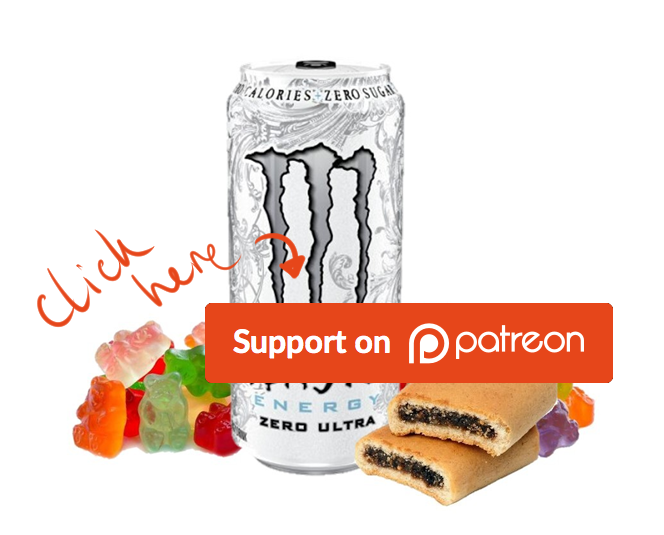
If you enjoyed this episode, please go to Apple Podcasts and leave us a review. That would help us beat the algorithms and help spread the enthusiasm to others by way of Break/Fix and GTM. Subscribe to Break/Fix using your favorite Podcast App:
 |  |  |
To learn more about EVOLVE LUBRICANTS revolutionary offering for street and track use, be sure to logon to www.evolvelube.com or follow them on social @evosynoil and @ecorsamotorsport.
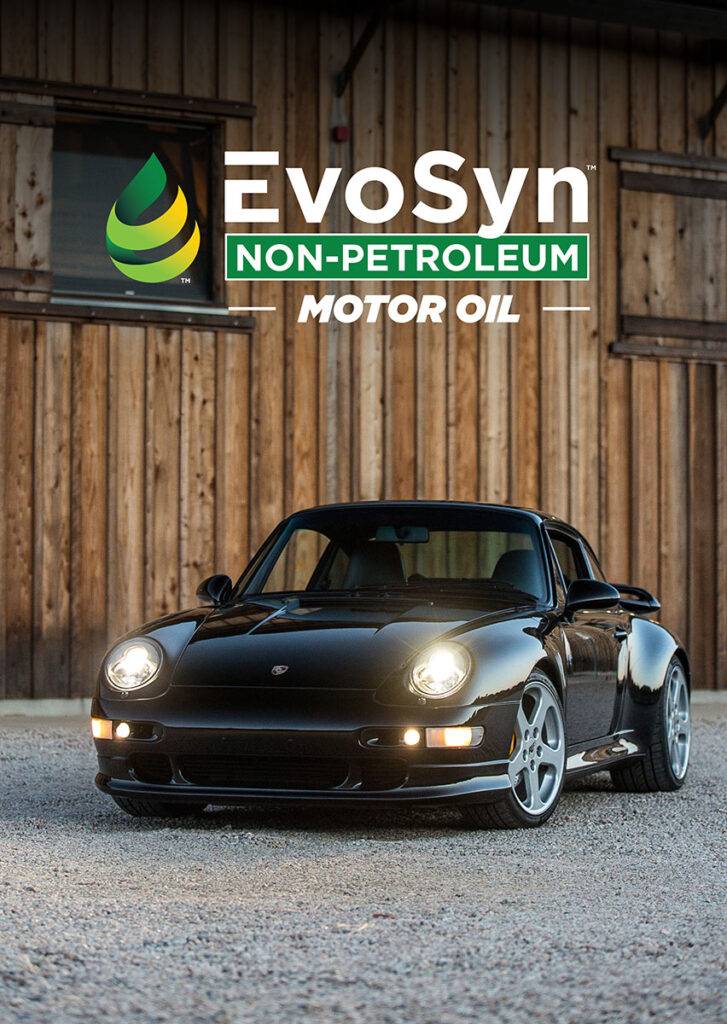
Evolve Lubricants, Inc. is unlike any other oil company on the planet. While many other manufacturers continue down the road of using petroleum in their products, Evolve saw a different approach to better performance and sustainability. Maximum protection, zero guilt. Non-Petroleum lubricants for automotive and industrial applications, using renewable and sustainable plant-based materials for outstanding performance.
